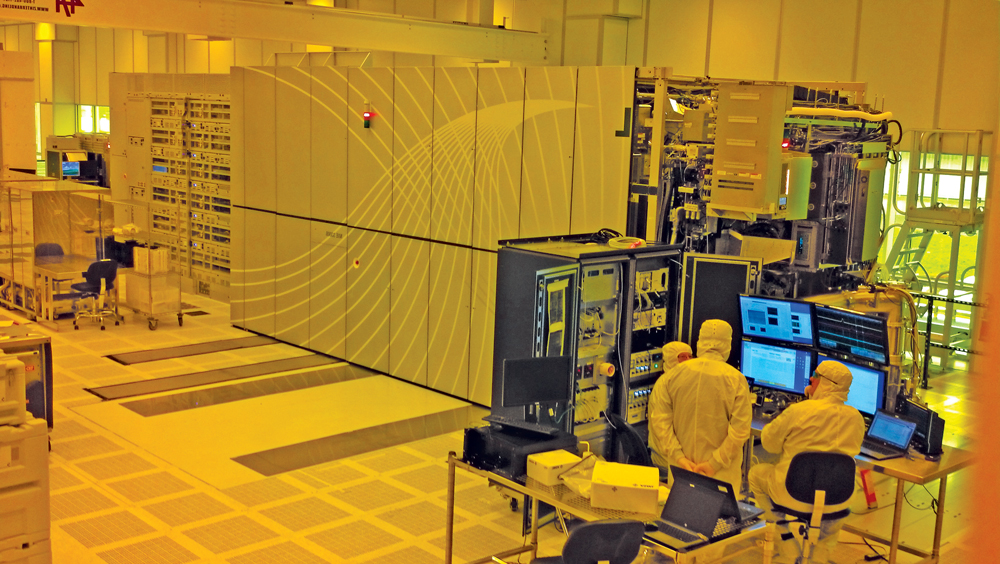Technology Means More Here
Half a dozen cranes are working overtime at the Albany NanoTech complex in New York, where a new chapter in the facility’s storied history is unfolding in earnest. Moving quickly on its mandate to establish three CHIPS for America research facilities, the non-profit entity Natcast on October 31 announced Albany Nano as the future home of an $825 million federal lab to accelerate the process by which increasingly intricate patterns are printed on microchips, thus supercharging their potential to power technologies from the mundane to the profound. The nationwide site search was launched in July. The lab could trigger billions of dollars of investment.
In operation for two decades, Albany Nano is considered to be the nation’s most advanced non-profit semiconductor R&D facility. The complex already hosts a Who’s Who of the semiconductor world, including IBM, Applied Materials, Global Foundries, Samsung and ASML, according to Paul Kelly, chief operating officer of NY CREATES, the non-profit organization that owns and operates Albany Nano.
“We’ll be the only place in North America that will be able to support this type of research,” says Kelly. “We hope that it’s hundreds if not thousands of companies that will come in and leverage our site.”
Connecticut Leveraging Strengths
Connecticut has launched a $100 million effort to foster “startup clusters” in sectors where it believes it enjoys a competitive advantage. The Connecticut Clusters initiative, announced in May, is offering grant funding through the state’s Department of Economic and Community Development (DECD) to support the continued growth of industries including biotechnology, financial technology, insurance technology and advanced manufacturing.
DECD officials point to QuantumCT, the newly launched public-private partnership led by Yale and the University of Connecticut, as an example of a cluster that’s begun to take shape. QuantumCT aims to position the state as a global hub for quantum education, job training and research innovation. As of last summer, the initiative had awarded one-year seed grants for exploratory quantum projects to nine Connecticut-based research groups.
Maryland’s Data Center Play
In a bid to grab a share of data center projects that have traditionally gone to neighboring Northern Virginia, Maryland has softened a key regulatory restriction that had inhibited data center development. The new Critical Infrastructure Streamlining Act, which removes a regulation that required data center operators to receive state approval for large-scale backup power generators, is a boon to the 2,100-acre Quantum Frederic project being developed by Austin, Texas-based Quantum Loophole at a former Alcoa smelter site in Maryland’s Frederick County. Houston-based Rowan Digital Infrastructure received local approval for its 300-MW Bauxite Data Center at Quantum Frederick last January. In May, the company announced plans to triple its initially planned footprint. Chief Data Center Officer Dan McNary says the project will deliver an initial 231 MW by late 2025, “providing a high value alternative to the congested Ashburn corridor,” a reference to Loudoun County, Virginia’s “Data Center Alley” 30 miles northwest of Washington, D.C.

